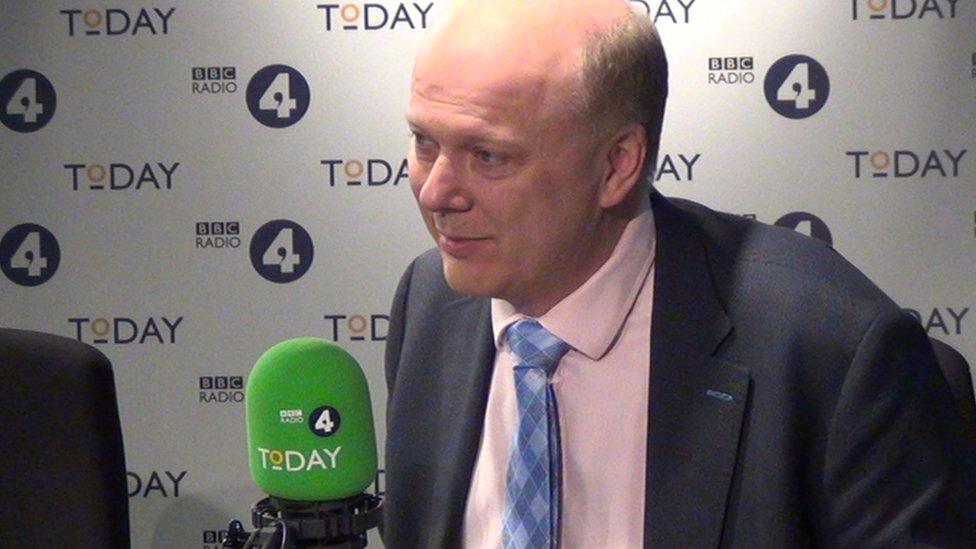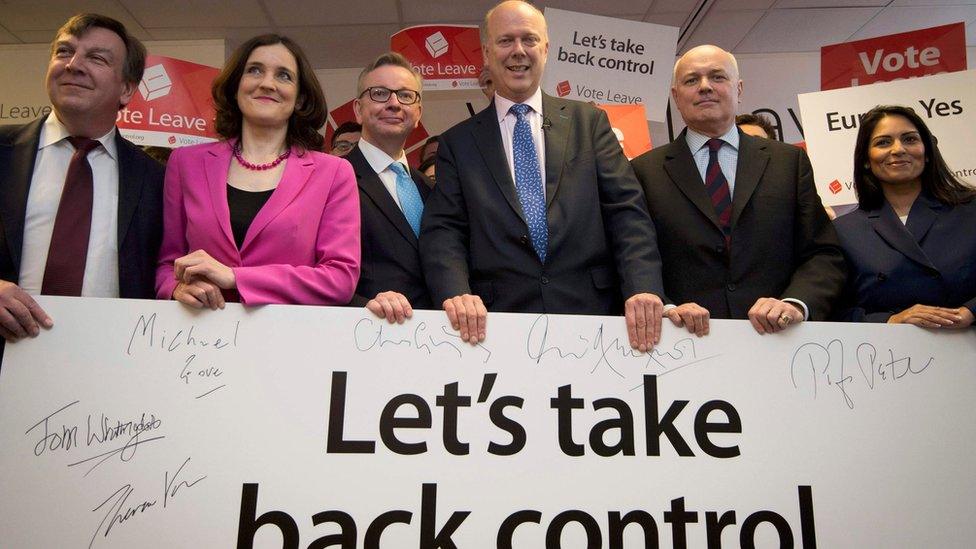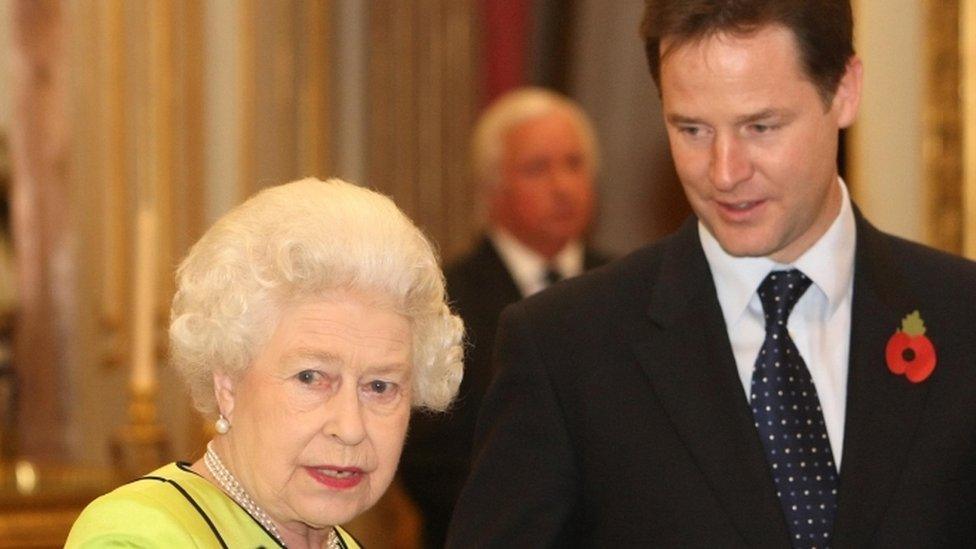Chris Grayling says Cameron's EU deal 'may make things worse'
- Published

Commons leader Chris Grayling has criticised David Cameron's EU reform deal, saying it could leave Britain in a "worse situation" than before.
Mr Grayling, who wants Britain to leave the EU, warned the country could be shut out of decisions as the eurozone nations integrate further.
He also hit back at the PM's claim that Leave campaigners thought losing jobs was a "price worth paying" for exit.
He said leaving the EU "would create the opportunity for more jobs".
In his speech Mr Grayling warned that Mr Cameron's concession in his EU renegotiation that the UK would not stand in the way of eurozone integration could undermine its position.
"One of the inadvertent consequences of the renegotiation discussions is that we have agreed that Britain 'shall not impede the implementation of legal acts directly linked to the functioning of the euro area'. This is a significant - and underappreciated - loss of leverage," he said.
"We now lack a key tool in preventing further EU integration - which we might be dragged along into. In fact we may be in a worse situation than we were before."
BBC Assistant Political Editor Norman Smith said Mr Grayling and the other Leave campaigners were trying to switch focus back to Mr Cameron's deal, after all the "sound and fury" of recent days, as they believe this is what the referendum is meant to be about - and it is an issue they feel they can "win more easily on" than the economy.
Mr Grayling - one of six members of Mr Cameron's top team backing the Leave campaign - warned the UK would still be choosing to stay in an "unreformed EU which will Hoover up more money and more power at every opportunity it gets".
"The degree to which the European Union now governs our lives is not changed by this agreement," he said.
"The renegotiation has not returned powers to Parliament or the people elected and accountable to it."
The minister told BBC Radio 4's Today programme he had "huge respect" for the prime minister and was "enormously grateful" to him for allowing ministers to speak their minds ahead of 23 June referendum on whether Britain should remain in the EU.
He also claimed the government could work together after the referendum but the public expected a "grown-up discussion" on the EU, adding: "They don't expect us to be automatons."
'Single government'
Addressing Mr Cameron's claims - due to come in a speech to car workers later - that the Leave campaign believed "lost jobs and a dented economy might be... a price worth paying" - he said "European Union regulations cost jobs in the country".
"Outside the European Union, we can take decisions and make laws that are in our own national interest," he added.

Five Cabinet ministers - John Whittingdale, Theresa Villiers, Michael Gove, Chris Grayling and Iain Duncan Smith - and employment minster Priti Patel launch Vote Leave campaign
Mr Cameron claimed to have secured protections for the City of London in his reform treaty, agreed last month at a Brussels summit.
He also secured an exemption for Britain from the EU's commitment to "ever closer union".
But Vote Leave, the cross-party group to which Mr Grayling is a member, is publishing research later that challenges this claim.
It will suggest the UK has "seemingly given up" its right to veto any future EU treaty drawn up to cement the process of economic and monetary union across the eurozone.
Mr Grayling told Today: "It is not a static situation. I believe we have already given up to much control now to the European Union to govern our affairs.
"But in future as they move to integrate further the danger is we will simply not be able to stop them doing things that will have an impact on us anyway."
He added: "As the eurozone moves towards being much more integrated, towards being a single government, the decisions they take will, nonetheless, impact on the City of London, for example."
- Published9 March 2016
